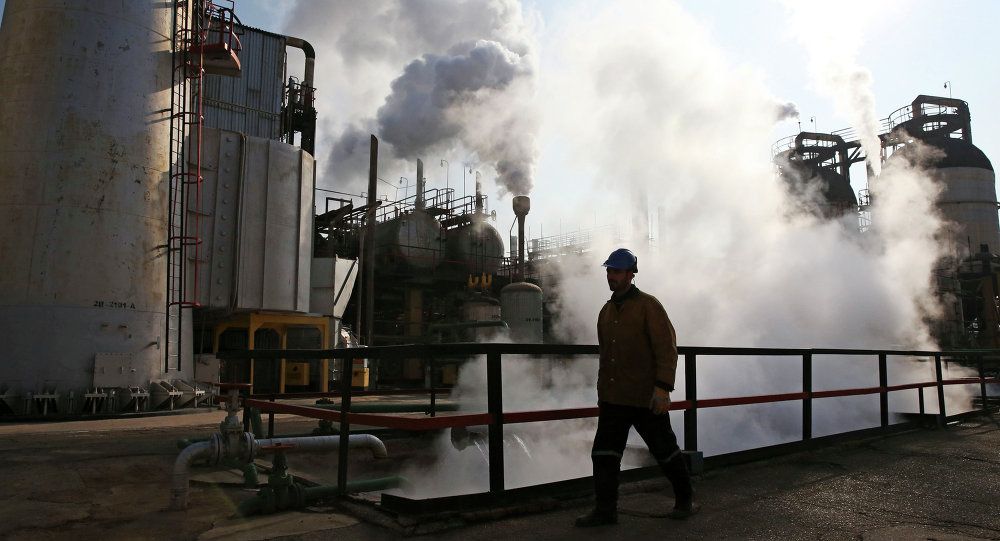 Iran and Iraq may oppose the proposal to freeze oil output this year at January's level. Some special conditions may be set for both countries.
Iran and Iraq may oppose the proposal to freeze oil output this year at January's level. Some special conditions may be set for both countries.
On Tuesday, the energy ministers of Saudi Arabia, Qatar and Venezuela held talks with Russia on the ongoing oil market crisis. The countries reached an agreement to freeze oil output at the average of January's level if other oil producers join the initiative.
On Wednesday, representatives of Venezuela, Iran and Iraq are expected to meet in Tehran to discuss the crisis, Mohsen Ghamsari, Director of International Affairs of the National Iranian Oil Company (NIOC), said.
Chances are slim that other producers will agree on the proposal, analysts told RIA Novosti.
Their decision will depend on what level of output will be used as a basis because there are different assessments – by the International Energy Agency (IEA), OPEC as well as by independent sources like Bloomberg or Argus, Wiktor Bielski, Global Head of Commodities Research at VTB Capital, told RIA Novosti.
Iran and Iraq may be the main opponents to the agreement.
"Earlier Iran said it will not freeze or cut output. Moreover, it wants to raise oil production after sanctions against Tehran have been lifted. Iran could be considered a special case. But Iraq may oppose the deal too," Bielski said, adding that other OPEC members may join the initiative.
Furthermore, if all OPEC members join the deal a special scenario may be proposed for Tehran, the analyst assumed.
"Of course, this will have positive consequences for the market, and price for Brent crude may stabilize at $30-
Iran and Iraq will be the key players in the upcoming negotiations.
"They have little stimulus to cut oil production. After sanctions have been lifted Iran plans to raise oil production to one million barrels a day," Marco Guili, an analyst at the European Political Center (EPC), said.
Perhaps, when Iran adapts to the environment and takes a comfortable share in the market, it might join the deal, he added.
The next ministerial meeting of OPEC and non-OPEC countries is set for June 2, where oil producing states are expected to determine oil extraction quotas.
Global oil prices plunged from $115 to less than $30 per barrel between June 2014 and January 2016, hitting their lowest levels since 2003, mostly because of prolonged global oversupply and sluggish demand.
Source: sputniknews.com
 В Атырау -10
В Атырау -10